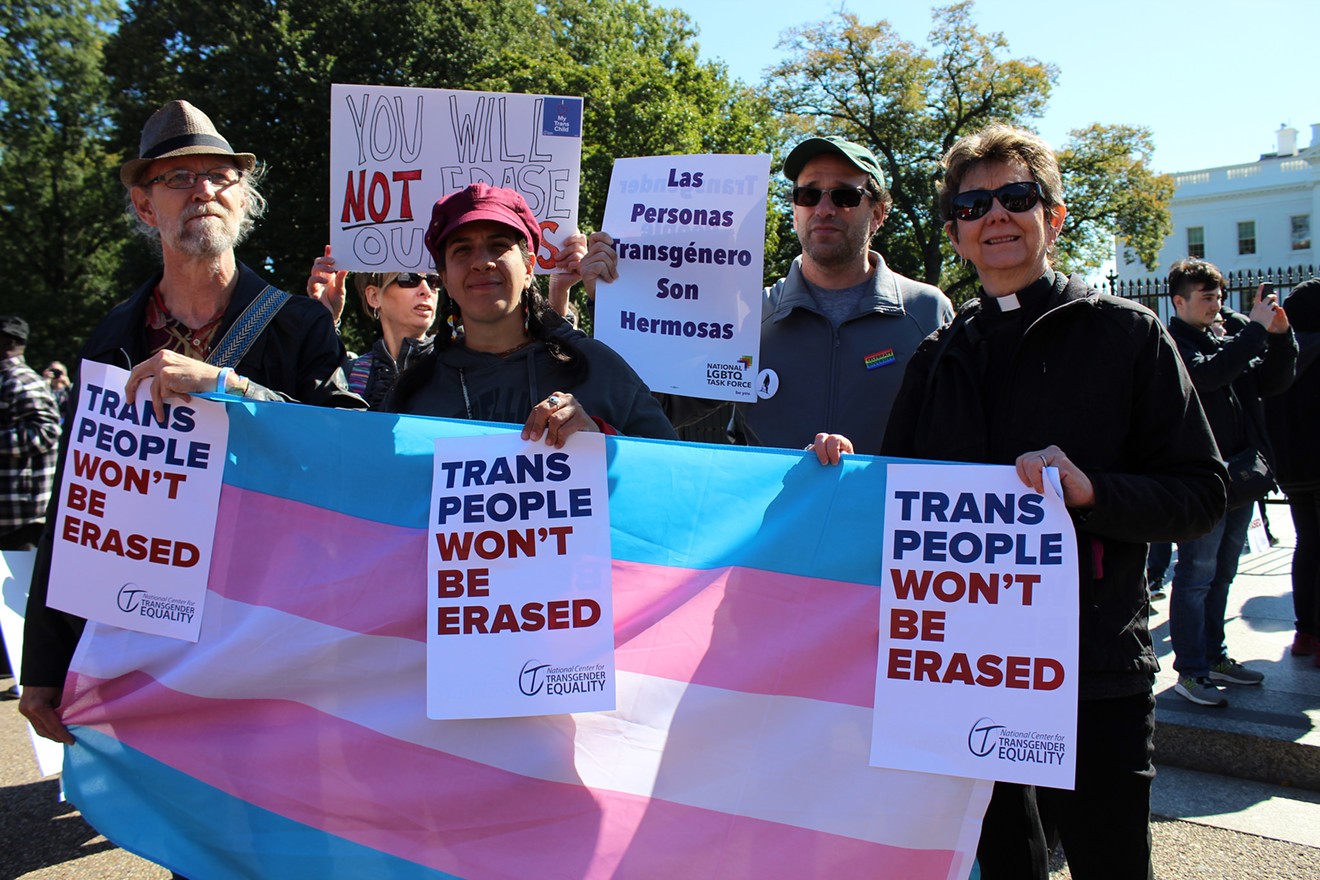Transgender activist Rajee Narinesingh still remembers the doctor's office where the staff "busted out in laughter" after they thought she was out of earshot.
"They handed me the clipboard with the form that I needed to fill out and they closed the window back, and then all I heard was this laughter," Narinesingh says. "I mean, I was just ready to leave because now I'm a joke, and how can I feel comfortable coming to a doctor's office for medical care if you're looking at me as a joke?"
While plenty of healthcare providers say they welcome transgender patients, Narinesingh's experience isn't uncommon in South Florida. In reality, many trans women say they have been misgendered, ridiculed, or even rejected from local hospitals and doctor's offices. A report released Wednesday by the nonprofit Human Rights Watch says that type of discrimination helps explain why Florida is failing to properly and comprehensively address the high rates of HIV within the trans community.
"It surprised me how traumatic it can be for trans women to just go to a doctor's appointment during the day," the report's author, Megan McLemore, tells New Times. "Just getting there can be a risky experience for them and so they need to know that at the other end of it, there’s going to be an environment where they’re going to be treated with respect."
The report from Human Rights Watch is the result of a year's worth of research in Miami-Dade and Broward Counties. The organization surveyed 125 trans women living in South Florida and interviewed more than 100 trans women, advocates, and HIV service providers. McLemore focused heavily on HIV prevention and access to other healthcare within the trans community.
Among the findings:
- More than six in 10 survey participants said they made less than $10,000 per year.
- More than half reported being unemployed.
- 45 percent said they had no health insurance.
- One-third reported they did not see a doctor regularly.
- Nearly one-quarter had been diagnosed with HIV.
Yet even among the clinics that receive state and federal funding for HIV care and services, Human Rights Watch found many were dismissive of trans patients. Advocates who work with transgender clients say one local clinic stated that "transgenders are not a priority," while another openly admitted they did not have a doctor who treats trans patients. Jackson Health System was name-checked in the report for misclassifying the gender of a 65-year-old trans woman named Barbie.
"I used to go to Jackson hospital, but I haven't been there in over a year," Barbie told Human Rights Watch. "They are terrible. Not knowledgeable about trans health. They misgendered me. I don't feel comfortable or trust them."
Another problem: Only a select number of clinics that provide HIV medication also offer hormone therapy, something experts say is key to retaining transgender patients.
"It may not yet be considered a standard of care, but it should be," Madeline Deutsch, a transgender health expert at the University of California - San Francisco, told Human Rights Watch. "Not providing hormone therapy with HIV care is akin to providing HIV care in a Latina neighborhood without any Spanish speakers available."
The report also criticized Florida for collecting incomplete data on transgender HIV patients. The state's most recent report on the HIV epidemic, for example, limited gender to "male" or "female" and only included one page about HIV trends for transgender people.
Since completing her report, McLemore says her research has been shared with the Florida Department of Health, which she says has been receptive to the criticism.
"We are starting a series of discussions with them about practical changes to their HIV programs," McLemore says. "I feel very optimistic that a year from now things are going to look a lot better on the ground."
While Miami-Dade and Broward have both launched campaigns in recent years for "Getting 2 Zero" new cases of HIV/AIDS, the report suggests there's still a lot of room for improvement.
"The federal and state government need to make sure that trans individuals are treated with respect when they come in for care," transgender activist Morgan












